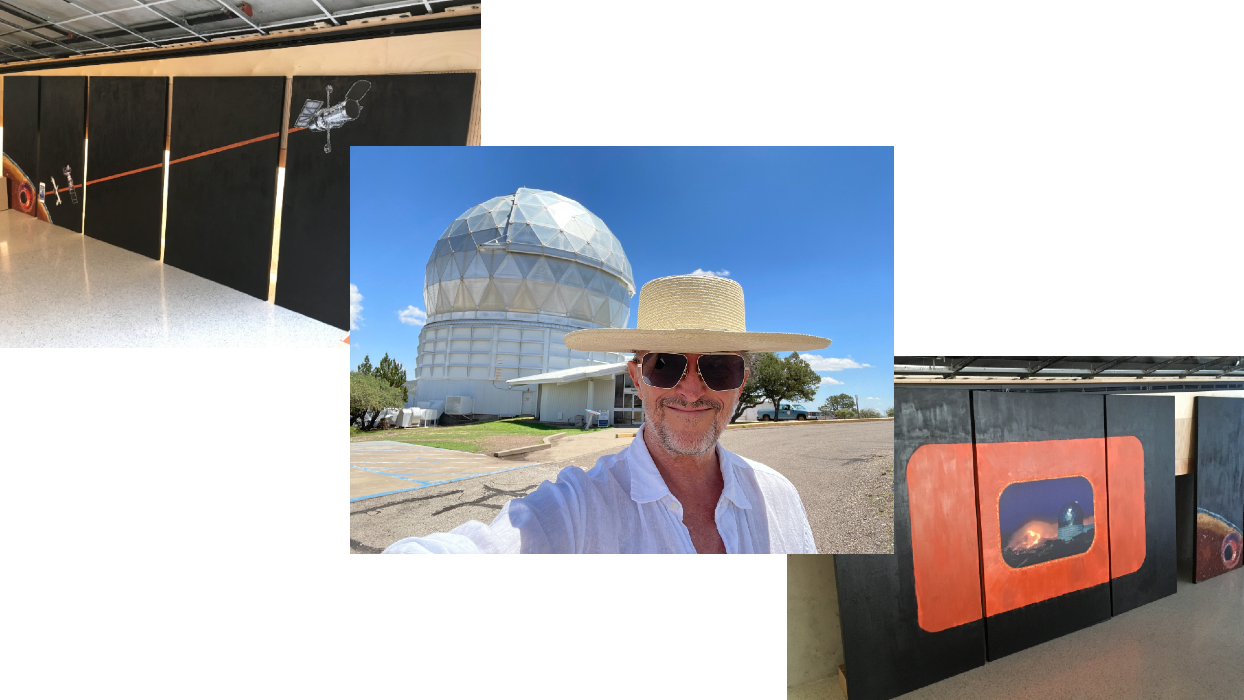Recently, Associate Professor in the Media Studies and Production Department at Klein College of Media and Communication Barry Vacker (he/him) attended the NASA Futures Workshop with 30 other professionals from various fields with an interest in space exploration. We talked to Vacker to find out more about the workshop and how he combines his interest in space with his background in critical media studies.
What can you tell me about the Futures Workshop?
The roundtable, or workshop, was set up in various little sessions with about 30 people. Sometimes it was all 30 of us in a session, sometimes we had breakout sessions. We were very happy and delighted to be consulting with Aerospace Corporation.
So, we spent the five hours going to different sessions and the idea was to explore how we thought space exploration should unfold. What were the things that could work well and what were the things that could be problematic?
I can’t say that everybody at NASA is gonna go, “Let’s do Barry Vacker’s idea!” In fact, you can say that Barry Vacker thinks he will be really surprised if he has any influence because my ideas are very different than Elon Musk.
At the end of the session, the NASA executive talked to us and said he was really impressed and that the host of the session is gonna have it all condensed down into a report that will be provided to NASA. He seemed genuinely excited.
How does this relate to your field of study?
I’m very interdisciplinary. So, I’ve written books, I’ve done a short film that played at festivals and won a very prestigious international award, and I’ve also done a big art exhibit that was at a media studies conference in Toronto. I have a wide range of interests; I’m not just focused on one thing. I’m looking more about the impact of media and technology on what it means to be human, what it means to be a species in a vast universe.
How did you get involved?
It’s sort of a long trajectory. The beginning is I’ve always been interested in science and interested in space, and I’ve seen numerous science fiction films. My all-time favorite science fiction film is 2001: A Space Odyssey, which is sort of the “standard for science fiction.”
That leads to 2014 when the movie Interstellar came out. And when I watched it, I realized that it was drawing upon a lot of ideas that were in 2001: A Space Odyssey and I turned to my girlfriend and I said, “You know, I could write something about this,” and she said, “Shh, I’m watching the movie.”
So, I got up the next morning and went and watched it again. I snuck in a pad and pencil and a little tiny flashlight so I could sit at the back and make notes. I thought, “I’m just gonna write a nice, long, thoughtful essay. I’ll try to get it published somewhere.” But then what happened is, something, like, opened up inside my brain and it all just started coming out and I turned it into a book which got published. That then led to me somehow getting invited to contribute to the book called After Shock about the 50th anniversary of a book called Future Shock, which talked about the accelerating pace of change that our society and our institutions are having difficulty dealing with. So, I wrote that, it got published, and that, I’m almost certain, is what led to being invited by the Aerospace Corporation to participate in the NASA workshop.
What did you contribute?
My position on going into space is 1) We should really try and unify our species and go out as a collective, not make it one nation or one company against each other. 2) That when we go to the moon, or Mars, we honor those places. They are billions of years old; they’ve never been touched by humans, and we don’t need to go there and strip-mine them. 3) Protect the moon and Mars as celestial wilderness areas. And my other thing is that we try to get artists and writers and young people much more interested in our true place in the universe. That’s my sort of “space philosophy” in a nutshell. That’s what I presented to NASA along with 28 to 30 other people.
When you think about it, we’re really curious. We’re really creative and we make these amazing technologies to do these things. These things, they’re amazing and they kind of illustrate the curiosity of the human species.
Quotes were edited slightly for length and clarity.

